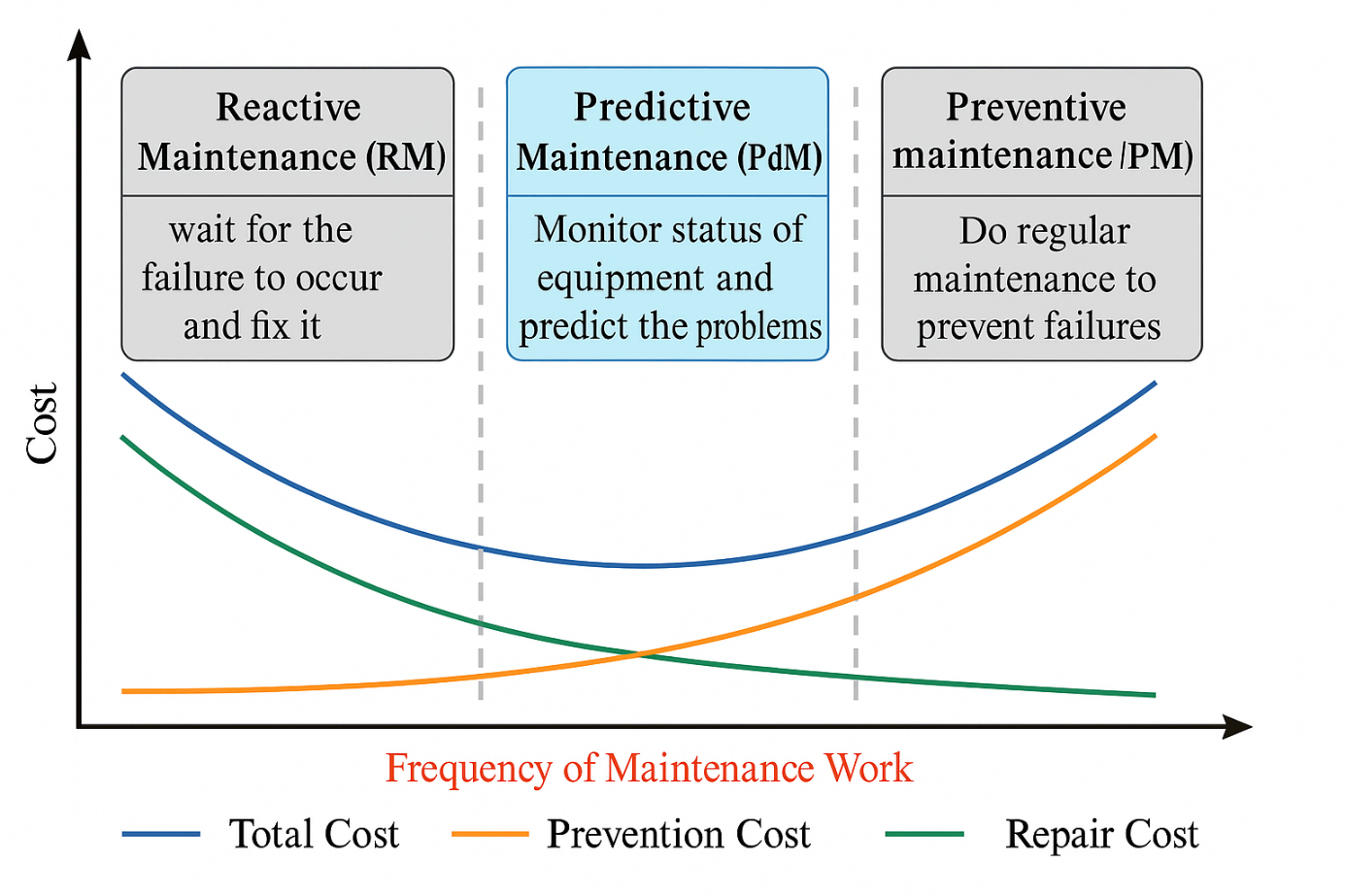M.S. Candidate: Rabia Nur Gevrek
Program: Data Informatics
Date: 25.08.2025 / 15:30
Place: A-212
Abstract: This thesis explores the use of predictive maintenance strategies under varying prediction horizons for complex machines. In practical settings, deciding the right time for maintenance is often more important than simply predicting the exact time of failure. Instead of focusing on an accurate prediction of the Remaining Useful Life (RUL), an approach is proposed to enable optimal maintenance time decisions, taking into account both maintenance and failure costs. This approach investigates various prediction horizons, from very short (e.g. next cycle) to much longer periods (e.g. next 50 cycles), and evaluates each based on its economic impact. To this end, LSTM-based models are trained on the C-MAPSS turbofan engine dataset to predict failures for different horizons. Apart from conventional metrics like RMSE or accuracy, the study uses a cost-based evaluation that accounts for scheduled maintenance costs and the higher cost of unexpected failures. The proposed maintenance strategy considers repeated failure warnings over time and applies Explainable AI (XAI) techniques, such as SHAP (SHapley Additive Explanations) to identify sensors that may serve as early signs of failures for targeted interventions. Overall, this thesis contributes to the literature by demonstrating that selecting the appropriate prediction horizon and incorporating cost-aware maintenance policies can greatly improve predictive maintenance decisions. The findings offer a practical approach for making predictive maintenance more efficient and economically effective.
